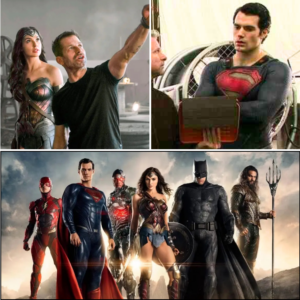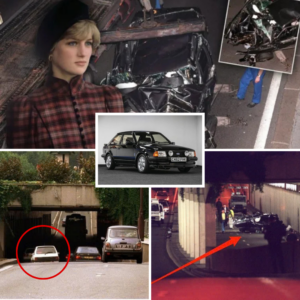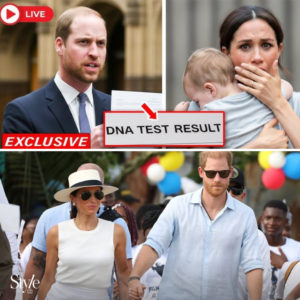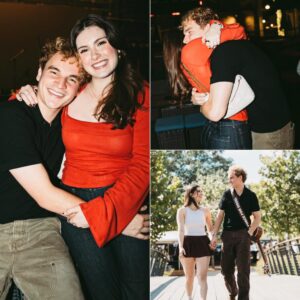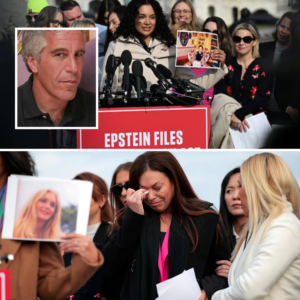In the electric atmosphere of Yerevan’s Vazgen Sargsyan Republican Stadium, on the evening of September 6, 2025, Cristiano Ronaldo delivered a performance that was both a masterclass in football and a deeply moving act of remembrance. Leading Portugal to a commanding 5-0 victory over Armenia in their opening 2026 World Cup qualifier, the 40-year-old legend scored twice, pushing his international goal tally to an astonishing 140. But it was his poignant gesture after his first goal—pointing to the heavens with a somber gaze—that captured the world’s attention. This was no ordinary celebration; it was a tribute to his late teammate Diogo Jota, who tragically passed away in July. In a match charged with emotion, Ronaldo’s dedication and Portugal’s dominant display not only ignited their World Cup campaign but also reshaped perceptions of a superstar whose heart matches his brilliance on the pitch.
The night began with a hush, as players and fans observed a minute’s silence for Jota and his brother André Silva, killed in a car accident in northern Spain on July 3, just 11 days after Jota’s wedding. The stadium, adorned with banners honoring the former Liverpool forward, who earned 49 caps for Portugal, felt heavy with grief. Jota, known for his electrifying pace and clinical finishing, was a vital part of Portugal’s 2019 Nations League triumph, a teammate Ronaldo had shared the pitch with 32 times. The loss was still raw, and the Portuguese squad, led by their talismanic captain, channeled that pain into purpose. As the whistle blew, Portugal unleashed a relentless assault, with 71% possession and 24 shots, transforming mourning into a masterclass of footballing might.
The scoring opened in the 10th minute, when João Félix, Ronaldo’s Al-Nassr teammate, headed in a pinpoint cross from João Cancelo. Eleven minutes later, in a moment that felt scripted by fate, Ronaldo struck. Latching onto a precise delivery from Pedro Neto, he slotted the ball home in the 21st minute—Jota’s jersey number for club and country. The crowd roared, but Ronaldo’s celebration was subdued. He raised both hands, fingers pointing skyward, his eyes fixed on the heavens as if speaking directly to his fallen friend. “Diogo is with us,” manager Roberto Martinez said post-match, noting the eerie significance of the timing. “That goal in the 21st minute was a sign.” The gesture wasn’t just Ronaldo’s; it was Portugal’s, with Cancelo later mimicking Jota’s iconic video-game celebration—sitting cross-legged, pretending to play a controller—after scoring the third goal.

The second half saw Ronaldo at his vintage best. Barely a minute after the restart, he seized a deflected pass from Vitinha and unleashed a thunderous long-range volley that rocketed into the net, leaving Armenian goalkeeper Henri Avagyan helpless. It was a strike that reminded the world why, at 40, Ronaldo remains a force of nature. Félix sealed the rout with a cheeky backheel in the 16th minute, completing his own brace, but it was Ronaldo’s performance—two goals, relentless energy, and emotional weight—that dominated headlines. With 942 career goals, he’s now just one shy of equaling Carlos Ruiz’s World Cup qualifier record of 39, a milestone he could claim as early as Portugal’s next match against Hungary.
The emotional undercurrent of the game was impossible to ignore. Jota’s death had shaken the footballing world, and Ronaldo’s absence from his funeral had sparked controversy. Critics questioned why the global icon, whose presence draws crowds, stayed away. His sister, Katia, defended him on Instagram, explaining that Ronaldo chose to grieve privately to avoid turning the somber occasion into a media circus. “When my father died, we couldn’t even leave the chapel because of the cameras,” she wrote, painting a picture of a family all too familiar with intrusion. Ronaldo reached out to Jota’s family personally, offering condolences and support. His skyward tribute in Yerevan was his public response—a moment of raw authenticity that silenced skeptics and moved fans. “Say what you want about Ronaldo, but that dedication to Jota was pure class,” one X user posted, echoing a sentiment that swept social media.
The match wasn’t just about Ronaldo. Portugal’s squad, a blend of veterans and rising stars, showed why they’re favorites to qualify for the 2026 World Cup in the USA, Canada, and Mexico. Félix, fresh off a Saudi Pro League season, proved his international mettle, while Cancelo’s versatility and flair shone through. Goalkeeper Diogo Costa, rarely tested, made a crucial save to preserve the clean sheet, and midfielders like Vitinha and Bruno Fernandes dictated the tempo with surgical precision. Martinez, who led Portugal to Nations League glory in June, praised the team’s “exemplary attitude” and “complete performance,” noting their 6.2 expected goals (xG) from 24 shots. Yet, he reserved special words for Jota’s memory: “We’re playing with him in our hearts.”
Public reaction was a tidal wave of emotion. Fans flooded X with praise, with posts like “Ronaldo’s still the GOAT, but that Jota tribute? That’s why he’s a legend” garnering thousands of likes. Others shared memories of Jota’s brilliance—his hat-trick against Leicester in 2019, his clutch goals for Liverpool, his infectious energy. The tribute resonated beyond Portugal, with Liverpool fans, still mourning their former star, creating viral montages of Jota’s goals set to emotional music. Even rival supporters joined in, with one Manchester United fan tweeting, “Respect to Ronaldo for honoring Jota like that. Class recognizes class.” The moment shifted perceptions of Ronaldo, often painted as a self-focused showman. Here was a leader carrying his team’s grief, using his platform to honor a friend rather than chase personal glory.
The broader context of Ronaldo’s career added weight to the night. At 40, he’s defying time, having just signed a new contract with Al-Nassr and led Portugal to a Nations League title. The World Cup, the one trophy missing from his glittering cabinet, looms as his final frontier. His great rival, Lionel Messi, matched his 36 World Cup qualifier goals days earlier, but Ronaldo’s brace pushed him ahead to 38, closing in on Ruiz’s record. Critics like Steve Nicol, who argued Ronaldo’s physical decline makes him a liability compared to Messi’s technical brilliance, were silenced by his long-range stunner. “He’s still carrying the attack,” Martinez countered, and the stats backed him: Ronaldo’s 140 international goals dwarf the next highest scorer by 26. His 942 career goals put the elusive 1,000 within sight, a milestone he’s vowed to chase.
For Portugal, the win was a statement of intent. Group F, with Hungary and Ireland as key rivals, won’t be a cakewalk, but this performance set the tone. The team’s next test, a clash with Hungary in Budapest on September 9, will demand the same intensity. Ronaldo, who has six goals against Hungary, including a brace in 2021, will be pivotal. Yet, beyond tactics and records, it’s the human story that lingers. Ruben Neves, Jota’s former Wolves teammate, wore the number 21 shirt in his honor, a detail that moved Martinez to tears. “Diogo’s spirit is our strength,” he said, a sentiment echoed by players like Nuno Tavares, who called the 21st-minute goal “a moment made possible by him.”
As the Yerevan crowd dispersed, the image of Ronaldo’s skyward gaze lingered. It was a reminder that football, for all its glamour, is a stage for human connection. Jota, who dazzled with his pace and smiled with his heart, was there in spirit, his legacy etched in every goal, every gesture. Ronaldo, often larger than life, showed a quieter side—a man who, despite global fame, carries the weight of loss like anyone else. For fans, it was a call to remember not just the goals but the bonds that make the game beautiful. As Portugal marches toward 2026, Ronaldo’s tribute to Jota will stand as a testament to loyalty, love, and the enduring power of a team united by more than just victory.
